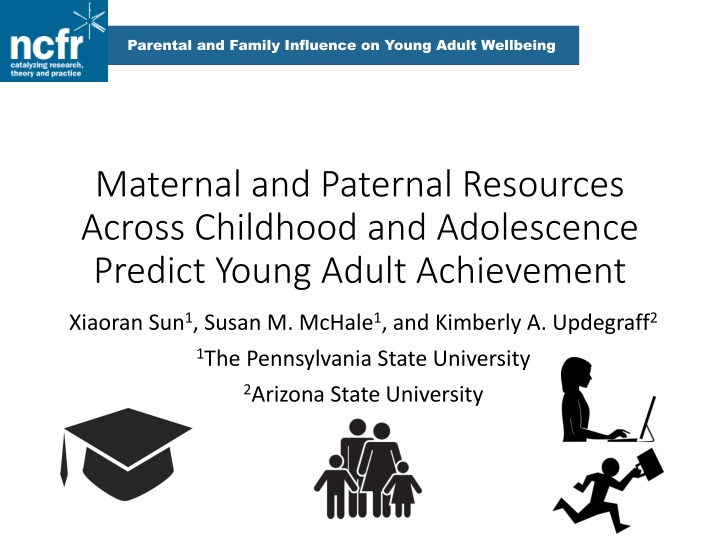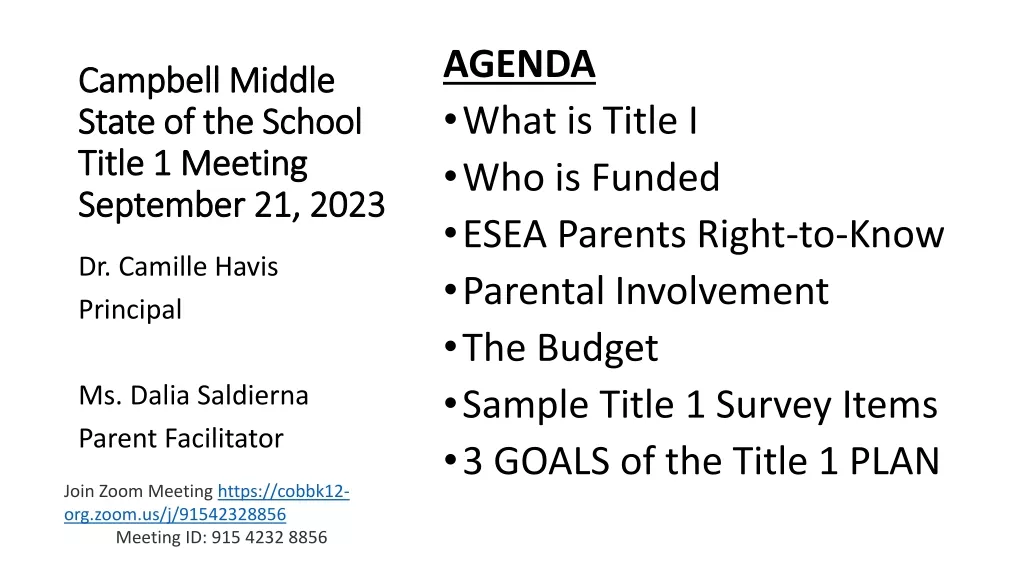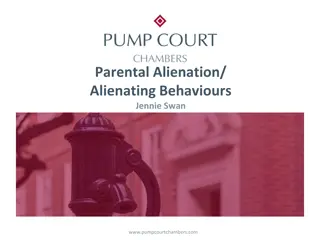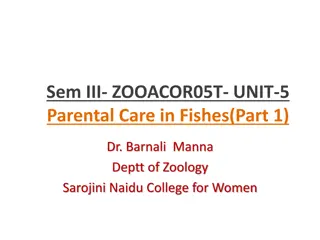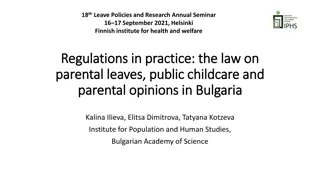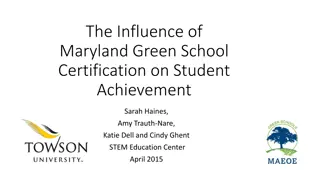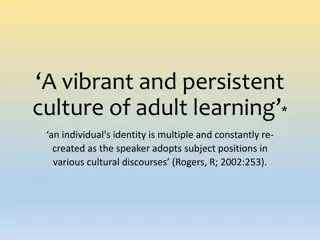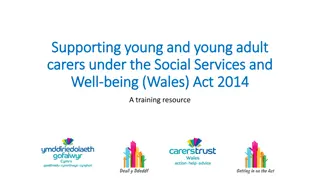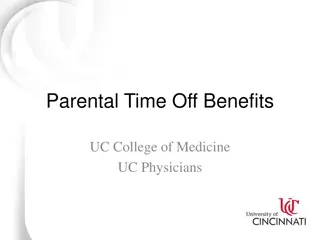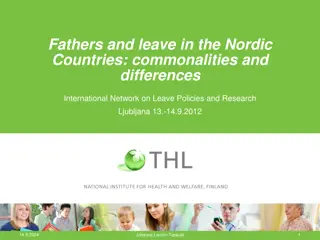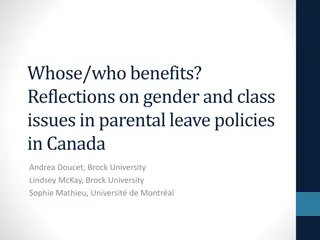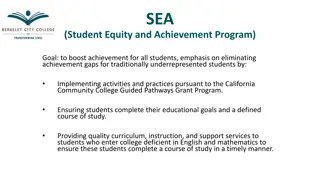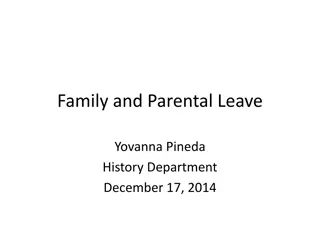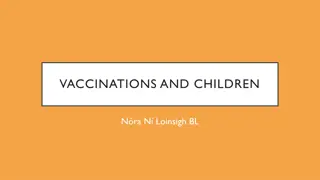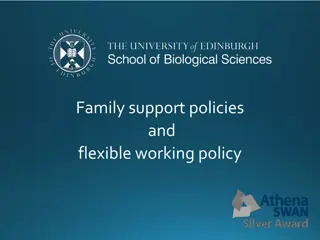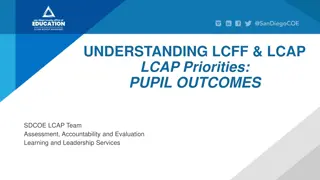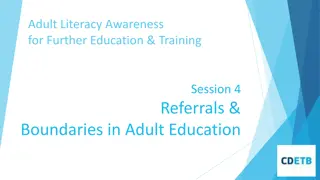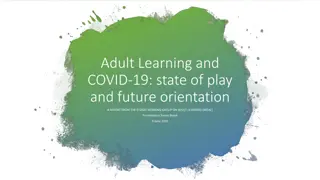Parental & Family Influence on Young Adult Achievement
This study explores the impact of parental resources, including parent attainment and warmth, on educational and occupational achievements of young adults. Grounded in capital theory, it examines how early experiences with parents influence young adult success across middle childhood and adolescence. The research involves analyzing the relationships between mothers/fathers and youth, considering factors such as stability, warmth, and parent attainments. Participants from the Penn State Family Relationships Project contribute to the understanding of these dynamics.
Download Presentation

Please find below an Image/Link to download the presentation.
The content on the website is provided AS IS for your information and personal use only. It may not be sold, licensed, or shared on other websites without obtaining consent from the author.If you encounter any issues during the download, it is possible that the publisher has removed the file from their server.
You are allowed to download the files provided on this website for personal or commercial use, subject to the condition that they are used lawfully. All files are the property of their respective owners.
The content on the website is provided AS IS for your information and personal use only. It may not be sold, licensed, or shared on other websites without obtaining consent from the author.
E N D
Presentation Transcript
Parental and Family Influence on Young Adult Wellbeing Maternal and Paternal Resources Across Childhood and Adolescence Predict Young Adult Achievement Xiaoran Sun1, Susan M. McHale1, and Kimberly A. Updegraff2 1The Pennsylvania State University 2Arizona State University
Parental and Family Influence on Young Adult Wellbeing Background Young adults educational and occupational achievements Critical for well-being throughout adult life (IOM & NRC, 2015) Can be traced to early experiences with mothers and fathers Gender differences In 1982, women began to outperform men in attainment of Bachelor s degrees (Buchmann et al., 2008) From 1972 to 2009, occupational gender segregation for young adults declined substantially (Hegewisch et al., 2010)
Parental and Family Influence on Young Adult Wellbeing Background Parents provide important resources for academic achievement and career development across childhood and adolescence. (Bryant, Zvonkovic, & Reynolds, 2006; Sirin, 2005; Steinberg, Lamborn, Dornbusch, & Darling, 1992) However, much less is known about the longitudinal implications of parental resources for achievements in young adulthood. Therefore, this study focuses on: Parental resources (parent attainment & parental warmth) Educational and Occupational Achievement Young adulthood Across middle childhood and adolescence
Parental and Family Influence on Young Adult Wellbeing Theoretical Base Capital theory (Coleman, 1988) Family capital generates youth achievement Human capital (e.g., parent education & occupation) Social capital (e.g., parent-youth relationships)
Parental and Family Influence on Young Adult Wellbeing This Study Early experiences with parents-> Young adult achievements Two sources of capital underlying young adult achievements examined together Mother/father-youth relationship warmth Mean levels Consistency (Stability) Mothers /fathers education and occupation attainment Grounded in an ecological model: Person (youth gender) Process (relationship warmth) Context (parents attainments) interactions
Parental and Family Influence on Young Adult Wellbeing Participants Penn State Family Relationships Project (co-PIs: Susan M. McHale & Ann C. Crouter; NICHD R01-HD32336) N = 164 families; 317 youth (52% female) Mothers, fathers, first- & secondborns 11 time points Time 1 to 9: annual home interviews Firstborns: M = 11.80 years old at Time 1 Secondborns: M = 9.22 years old at Time 1 Time 10 & 11: young adult follow-ups; phone interviews Firstborns: M = 26.26 at Time 10 Secondborns: M = 26.07 at Time 11
Parental and Family Influence on Young Adult Wellbeing Measures Parent-youth warmth (Times 1 to 9; Blyth & Foster-Clark, 1987) Cross-time mean levels Cross-time consistency reverse-coded iSDs (Ram & Gerstorf, 2009): standard deviations across time Educational attainment Parents: Times 1 to 9 Young adults: Time 10 for firstborns, Time 11 for secondborns Occupational prestige (ICPSR 9593; Davis, Smith, Hodge, Nakao, & Treas, 1991) Covariates Parent age Young adult age
Parental and Family Influence on Young Adult Wellbeing Analysis Multilevel models Two levels Level 1: within-family Relationship warmth indices, youth gender & age Level 2: between-family Parents attainments & age Separate models for mothers v. fathers educational v. occupational achievements
Parental and Family Influence on Young Adult Wellbeing Analysis Effects examined: Main effects: Warmth cross-time mean Warmth cross-time consistency Parents attainment Interactions: Warmth mean X Parents attainment Warmth mean X Parents attainment X gender Warmth consistency X Parents attainment Warmth consistency X Parents attainment X gender
Parental and Family Influence on Young Adult Wellbeing Results Parental resources from middle childhood through adolescence predicted young adults educational achievement Parental warmth cross-time mean = .34, SE = .21, N.S. Parental warmth cross-time consistency = 1.55, SE = .55, p <.01 Parent education = .22, SE = .06, p <.001 Interactions all N.S.
Parental and Family Influence on Young Adult Wellbeing Results Maternal resources from middle childhood through adolescence predicted young adults occupational prestige Mother warmth cross-time mean = 2.84, SE = 1.90, N.S. Mother warmth cross-time consistency = 14.82, SE = 5.22, p <.01 Mother prestige = .10, SE = .07, N.S. Mother warmth consistency X Mother prestige X Youth gender = -1.57, SE = 0.75, p <.05
Parental and Family Influence on Young Adult Wellbeing Mother warmth consistency X Mother prestige X Youth gender (boosting effect) (compensating effect)
Parental and Family Influence on Young Adult Wellbeing Results Paternal resources from middle childhood through adolescence predicted young adults occupational prestige Father warmth cross-time mean = 3.16, SE = 1.75, p =.06 Father warmth cross-time consistency = 2.68, SE = 4.77, N.S. Father prestige = .10, SE = .08, N.S. Father prestige X Youth gender = .33, SE = .15, p <.05 Sons: = 0.26, SE =0.11, p = 0.02 Daughters: = -0.08, SE =0.11, N.S.
Parental and Family Influence on Young Adult Wellbeing Take-home points Longitudinal implications: Experiences with mothers & fathers from middle childhood through adolescence predicted young adult achievements at age 26 Controlling for mean level, cross-time consistency in relationship warmth is important to achievement For occupational achievement mothers and fathers resources are differently linked to their sons versus daughters achievements The effects of maternal warmth differ as a function of mothers occupation attainment
Parental and Family Influence on Young Adult Wellbeing Limitations & Future directions Links: correlational design does not allow for causal inferences; intervention studies needed Sample: limits generalizability Young adults were only around 26 years old; late bloomers may show different patterns
Parental and Family Influence on Young Adult Wellbeing Contributions Cross-time consistency in relationship warmth: an extension of prior research Two sources of influence tested together: main effects & interactions Both mothers and fathers Moderating role of gender: implications for gender differences
Parental and Family Influence on Young Adult Wellbeing Thanks! Questions & Suggestions xbs5014@psu.edu Acknowledgement to: Eunice Kennedy Shriver National Institute of Child Health and Human Development (Grant R01-HD32336) The National Science Foundation (IGERT Grant DGE-1144860, Big Data Social Science) Sun, X., McHale, S. M., & Updegraff, K. A. (2017). Maternal and paternal resources across childhood and adolescence as predictors of young adult achievement. Journal of Vocational Behavior, 100, 111-123.
Parental and Family Influence on Young Adult Wellbeing Policy & Intervention implications For parent education programs: consistency matters Support long-term benefits of parent education programs Both mothers and fathers Targeted intervention for boys with low-achieving mothers
Parental and Family Influence on Young Adult Wellbeing Results: Descriptives
Parental and Family Influence on Young Adult Wellbeing Results: Experiences with parents-> Educational attainment
Parental and Family Influence on Young Adult Wellbeing Results: Experiences with mothers-> Occupational prestige
Parental and Family Influence on Young Adult Wellbeing Results: Experiences with fathers-> Occupational prestige Sons: = .26,* Daughters: = -.08, N.S.
